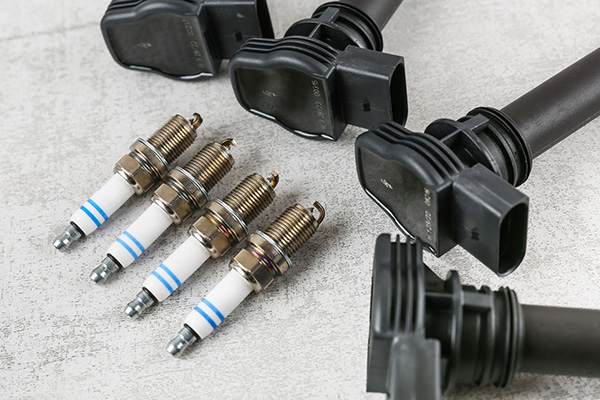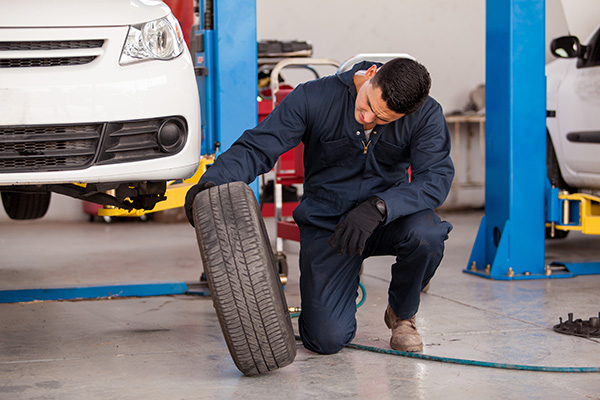Posted on 1/29/2026

Ignition problems have a way of starting small. The car still drives, but it feels slightly off in a way you cannot fully describe. Then one day the issue becomes obvious, and you’re stuck wondering how long it’s been building. Spark plugs and ignition coils are common wear items. When they start to fail, they can cause misfires, rough running, and fuel economy issues. The good news is that the warning signs are usually pretty clear once you know what to look for. What Spark Plugs And Coils Actually Do Spark plugs ignite the air-fuel mixture in each cylinder. Ignition coils provide the high-voltage spark that ignites the combustion. In many modern engines, each cylinder has its own coil mounted right on top of the plug. As plugs wear, the gap grows, and the spark becomes less consistent. Coils can weaken with heat and age. Either issue can cause incomplete combustion, which is why the symptoms often feel like hesitation, roughness, or lack of power ... read more
Posted on 1/28/2026

Chris Ottinger is living with CLL (chronic lymphocytic leukemia) and taking on Big Climb Dallas to fund blood cancer research and support families. Here’s his why. Chris Ottinger Is Climbing Big Climb Dallas With CLL Seventy floors is a lot of stairs for anyone. But for Chris Ottinger, this climb isn’t just a fitness challenge. It’s personal. Chris is living with CLL (Chronic Lymphocytic Leukemia), a type of blood cancer, and he’s taking on Big Climb Dallas to help push research forward and support families who are fighting right now. What makes Chris’s story hit harder is how normal he makes the hard stuff sound. He doesn’t post dramatic updates. He just shows up, even on treatment days, and keeps moving forward. If you want to support him as he trains and fundraises, you’ll find his page here ... read more
Posted on 12/19/2025

That sweet, almost syrupy smell in the driveway or at a stoplight is not just “old car smell.” It is one of the earliest warnings your cooling system gives you before things get expensive. If you can smell antifreeze, coolant is already escaping somewhere, and the system will not magically seal itself back up. What That Sweet Coolant Smell Really Means Coolant, often called antifreeze, is a mix of water and chemicals that raises the boiling point, lowers the freezing point, and protects metal surfaces inside the engine. It is made with a distinct sweet odor, so leaks are easier to notice. When you catch that smell, some of that fluid has left the closed system and landed on a hot engine part, exhaust component, or is drifting into the cabin vents. Sometimes the leak is tiny, just enough to create a faint scent on warm days. Other times it lands on very hot metal and turns into light vapor you can smell around the front of the car. Your nose often picks ... read more
Posted on 11/28/2025

Worried that a visit to a neighborhood shop might put your factory warranty at risk? It will not, as long as the work is done on time, with the correct parts and fluids, and properly documented. The warranty covers defects, not where you buy routine maintenance. Here is a clear, practical guide so you can choose service confidently during the warranty years. What a Factory Warranty Covers and What It Doesn’t A factory warranty promises the automaker will fix defects in materials or workmanship for a set time or mileage. It does not require you to purchase routine maintenance from the dealership. If something fails, the manufacturer must honor the claim unless it can show the failure was caused by neglect, the wrong fluid, or an improper procedure. That is why accurate service, done on schedule, is the whole game. You Have a Choice, Protected by Consumer Law Consumer protection rules say a maker cannot force you to use a specific brand of p ... read more
Posted on 10/31/2025

Tire rotation might not seem like a big deal, but it is essential for keeping your car safe, efficient, and handling the way it should. It’s one of the simplest forms of maintenance, yet many drivers forget to do it regularly. If you’ve noticed uneven tread wear or your car doesn’t feel as smooth on the road as it used to, it might be time to check when your tires were last rotated. Why Tire Rotation Matters Each tire on your vehicle wears differently depending on its position. The front tires handle more of the steering and braking load, while the rear tires often wear more evenly. On front-wheel drive cars, the front tires also provide the power to move the vehicle, which adds to the wear. By rotating your tires regularly, you spread out this wear more evenly. That helps the tires last longer, improves handling, and can even boost fuel efficiency. It also keeps the tread depth more consistent, which improves grip in rain or snow and helps prevent ... read more